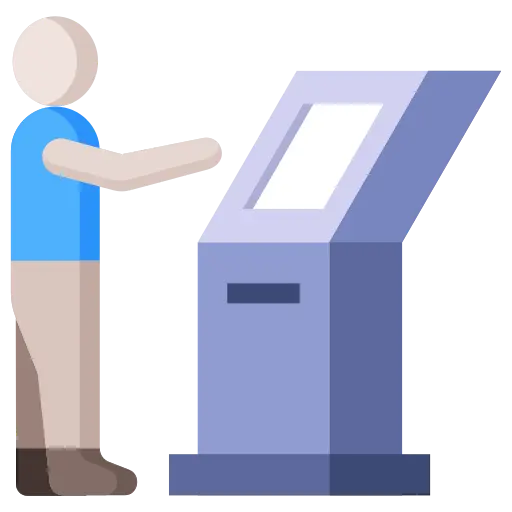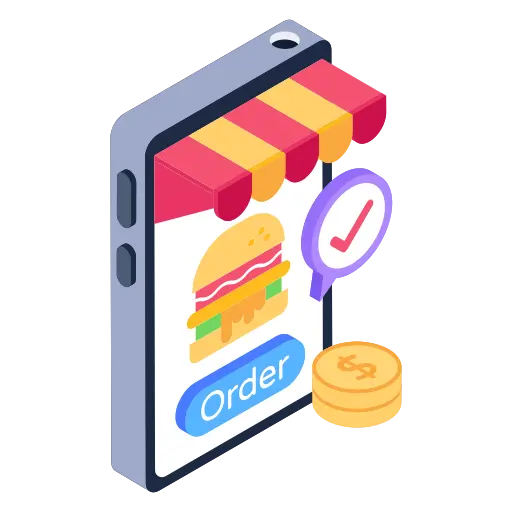Setting up a Kiosk License in UAE: A Temporary Kiosk Permit
Kiosk license Dubai is your gateway to setting up a profitable retail kiosk in one of the world’s top business hubs. This guide explains everything you need to know.
Before you kickstart this exciting venture, it’s important to understand the process of how to obtain a kiosk license permit.
In this article, you’ll learn everything you need to know about obtaining this permit in Dubai, so you can navigate the legalities and requirements with ease.
Dubai is a hub for innovative retail concepts, and kiosks have become a popular choice for entrepreneurs looking to open their own businesses.
However, the regulatory framework for kiosks in Dubai can be complex and overwhelming, especially for those new to the region.
From understanding the different types of kiosks permitted in Dubai to the application process and necessary documents, we will guide you through each step to ensure a smooth and successful permit acquisition.
Requirements for Acquiring a Kiosk License in Dubai, UAE
It’s important to note that different types of kiosks may have different requirements, so it’s best to consult with a professional service provider like us for specific details.
Passport Copy
Emirates ID
Choose Location
Trade License Copy
Obtain approval depending on the activity
Kiosk License/Permit in Dubai Approximate Fees
The application fee for a kiosk permit varies depending on the type of business activity. Application fees can range from approximately AED 5,000 to AED 10,000 or more.
Types of KIOSK Licenses/Permits in Dubai

Retail Kiosk Permit
Grants permission for retail product sales such as clothing, accessories, electronics, or other consumer goods from a kiosk, allowing entrepreneurs to operate in high-footfall areas like malls, public spaces, or transport hubs. This license enables businesses to legally showcase and sell their merchandise in compact, flexible setups. However, it also requires strict adherence to licensing and trade regulations specific to the type of products being sold, including compliance with health, safety, and consumer protection laws. Sellers must ensure their goods meet quality standards and that their kiosk setup aligns with local zoning and operational guidelines to maintain business legitimacy and avoid penalties.

Information & Service Kiosk Permit
Permits for providing information or services through kiosks are essential for businesses offering public access solutions such as ticketing services, tourist information, utility bill payments, and more. These kiosks serve as convenient, self-service points for customers, often located in high-traffic areas like malls, transport hubs, or tourist spots. To legally operate such kiosks, businesses must obtain the proper licenses and permits, ensuring their operations comply with local laws and industry-specific regulations. Approval from appropriate government or municipal authorities is required, and adherence to safety, consumer protection, and data privacy standards is a must to maintain compliance and build customer trust.

Mobile Kiosk Permit
Permits for movable or portable kiosks allow businesses to operate flexible retail units that can be easily transported to various locations, such as malls, events, parks, or tourist spots. These kiosks offer a cost-effective way to reach diverse customer bases without the need for permanent shop space. However, obtaining such permits requires strict compliance with local mobility and location regulations. Authorities often set guidelines regarding approved operating zones, health and safety standards, and limitations on size or design. Ensuring adherence to these rules is essential to avoid fines or operational delays, allowing businesses to run smoothly and legally in dynamic environments.

Event or Temporary Kiosk Permit
Permits for kiosks set up temporarily for events, exhibitions, or specific promotions are essential to operate legally and avoid penalties. These short-term kiosk licenses allow businesses to showcase their products or services in high-traffic venues, such as trade shows, festivals, or seasonal markets. To obtain a temporary permit, businesses must comply with event-specific regulations, including safety standards, operational guidelines, and designated location rules. Organizers or local authorities may require documentation, such as floor plans, insurance coverage, or product details. Securing the right permit not only ensures legal compliance but also enhances visibility, boosts sales opportunities, and strengthens brand presence during key events.

Art & Craft Kiosk Permit
Permits for kiosks selling handmade arts, crafts, or related products are essential for operating legally in designated commercial areas. These permits ensure that sellers meet the required standards for quality, authenticity, and safety. Vendors must clearly define the nature of their products, whether it’s handcrafted jewelry, pottery, or decorative items. Additionally, obtaining the correct permit demonstrates professionalism and builds customer trust.
Adherence to regulations specific to art and craft retail includes compliance with zoning laws, health and safety guidelines, and consumer protection rules. These regulations help preserve the integrity of the creative marketplace while ensuring a smooth, legal business operation.

Food & Beverage Kiosk Permit
Allows the operation of kiosks selling food and beverages in designated commercial areas such as malls, parks, and public event spaces. This type of kiosk license is ideal for entrepreneurs looking to enter the food and beverage industry with a cost-effective, small-scale setup. To operate legally, businesses must comply with local health and safety regulations, including sanitation standards, food storage, and preparation guidelines. Additionally, owners are required to obtain the necessary food permits from relevant authorities, such as the municipality or health department. Proper documentation and periodic inspections help ensure the quality, hygiene, and safety of products sold to the public.

ATM Kiosk Permit
ATM Operation Permits: Permits for operating automated teller machines (ATMs) at specific locations are essential for businesses or institutions looking to provide banking services to the public. These permits ensure that the ATM is legally placed in a strategic and secure location, such as malls, commercial centers, or retail stores. Obtaining this type of permit requires close coordination with licensed banks, as well as adherence to strict financial and regulatory guidelines set by government authorities. Regulatory compliance ensures safety, transparency, and protection of user data. This process involves documentation, location approval, and compliance with financial and cybersecurity standards in the UAE.

Payment Kiosk Permit
Permits for kiosks that facilitate various types of payments, bill settlements, or service recharges are essential for operating legally in Dubai. These kiosks typically handle transactions such as mobile recharges, utility bill payments, transportation card top-ups, and other financial services. To ensure smooth operations, businesses must obtain the proper licenses and permits, demonstrating adherence to local financial regulations. Compliance with data protection laws and payment security standards, such as PCI DSS, is also mandatory. This ensures customer transactions are safe and trustworthy. Regulatory approval not only protects consumers but also enhances the credibility and legitimacy of the kiosk business in the marketplace.

Technology & IT Kiosk Permit
Permits for kiosks providing technology-related services or products are essential for businesses operating in the tech sector, especially in high-traffic areas like malls, business hubs, or public venues. These kiosks may offer services such as mobile repairs, gadget sales, IT support, or electronic accessories. To legally operate, businesses must obtain proper licensing and ensure full compliance with both technology-specific and general business regulations. This includes adhering to data protection standards, consumer safety rules, and digital transaction guidelines. Securing the right permit not only legitimizes operations but also builds trust with customers and protects the business from legal penalties or shutdowns.
It’s important to note that the specific requirements, regulations, and procedures for obtaining these permits may vary based on the jurisdiction (free zone or mainland) and the nature of the kiosk. Prospective kiosk operators should consult with the relevant authorities and obtain necessary approvals before setting up a kiosk in Dubai.
Companies in Dubai may want to have this permit for several reasons, such as:

Increase Visibility
A kiosk can help a company increase its visibility and reach more potential customers. By placing a kiosk in a busy area, the company can attract people who may not have otherwise noticed their business.

Flexibility

Test New Products

Cost-Effective

Diversify Revenue Streams
In summary, obtaining a kiosk license in Dubai offers numerous advantages for businesses looking to establish a strategic presence in high-traffic areas. It provides increased visibility, allowing companies to reach a wider audience and enhance brand awareness. The setup is cost-effective, making it ideal for startups or small businesses seeking a physical presence without the high overhead costs of traditional retail. Additionally, kiosk operations offer flexibility in terms of location and hours, enabling businesses to adapt quickly to market trends. This license also allows for diversification of revenue streams and serves as a low-risk platform to test new products or services.
Start Your Kiosk Business Today – Contact Us for Hassle-Free Licensing!






